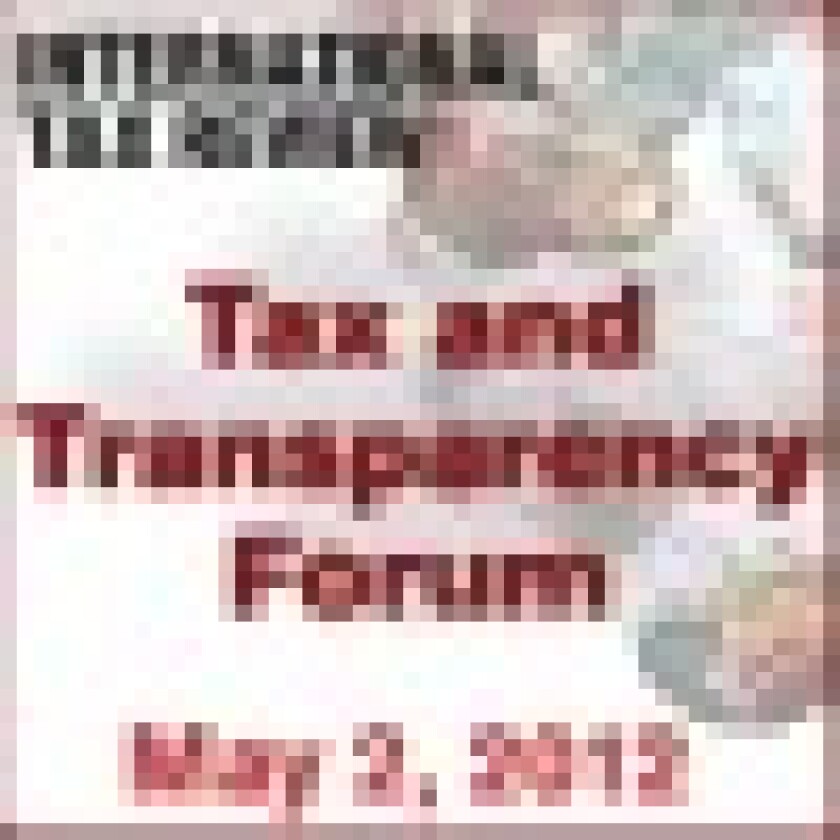Tax professionals toss the word transparency around with such abandon, that there is often no time to try to understand what the term means to each distinct group in the tax market.
What is clear is that transparency means different things to different people. To tax officials, it means the ability to access any piece of data they require about a company’s tax affairs, through the various forms of exchange of information. To a company it means adhering to the law about what they must disclose about those affairs. To development agencies and other tax justice activists, it means nothing less than automatic exchange of information and country-by-country reporting.
But what effect does the drive for greater transparency have on the tax executives around the world that have to make decisions and advise their companies about how much they must, or should, reveal about their tax affairs?
The panel, “Cross border challenges: powers and transparency”, at International Tax Review’s Tax & Transparency Forum in London on May 2, will look at the pressures and challenges taxpayers face when dealing with information exchange.
The session, which will be chaired by Liesl Fichardt, a partner of Berwin Leighton Paisner in London, will open with Jonathan Schwarz, a barrister from Temple Tax Chambers, also in London, discussing recent developments in the UK at an OECD level. The lawyer, who has written or contributed to publications on tax treaties; residence, domicile and UK taxation, and transfer pricing and business restructuring will also look at problems can arise in practice, for example, in the cross-border collection of taxes.
The tax executives on the panel will then each speak about their experiences of cross-border issues and information exchange; Jeff Connell, of Shell, will talk, in particular, about relations with the Dutch authorities in this area; David Smith, of International Power, will expand on the practical application of information exchange provisions and the misunderstandings that may arise and Kevin Chartlon, of UBS Asset Management, will refer to the points of interest in his industry, such as FATCA and third-party information requests.
The panellists will then move on to debating these questions:
· Are the powers of tax authorities sufficiently transparent?
· Do tax authorities appreciate the cost and complexity involved and how could processes be improved to achieve that they do?
· Can it be suggested that corporates/banks do not have sufficient safeguards?
· Will automatic exchange of information pose problems?
In the sessions, these tax practitioners and executives will get the opportunity to emphasise the questions about information exchange that they have to try to answer every day, such as about cost and complexity, and the transparency of the methods used by the tax authorities.
It is clear that if transparency is to work to everyone’s satisfaction, the quicker everyone recognises it is a two-way street the better, that is, there is a requirement on tax authorities to be transparent, too.
The panel occupies 75 minutes before lunch on May 2. It is preceded by a session on country-by-country reporting and a presentation that argues the case for automatic information exchange. It is followed by “Transfer pricing: is the arm’s length principle enough?”
The final two sessions of the day-long conference look at transparency in dispute resolution and whether it has a role in corporate social responsibility.
The Forum is free to attend for tax directors and NGOs. For a full programme and details of how to register, click here.











